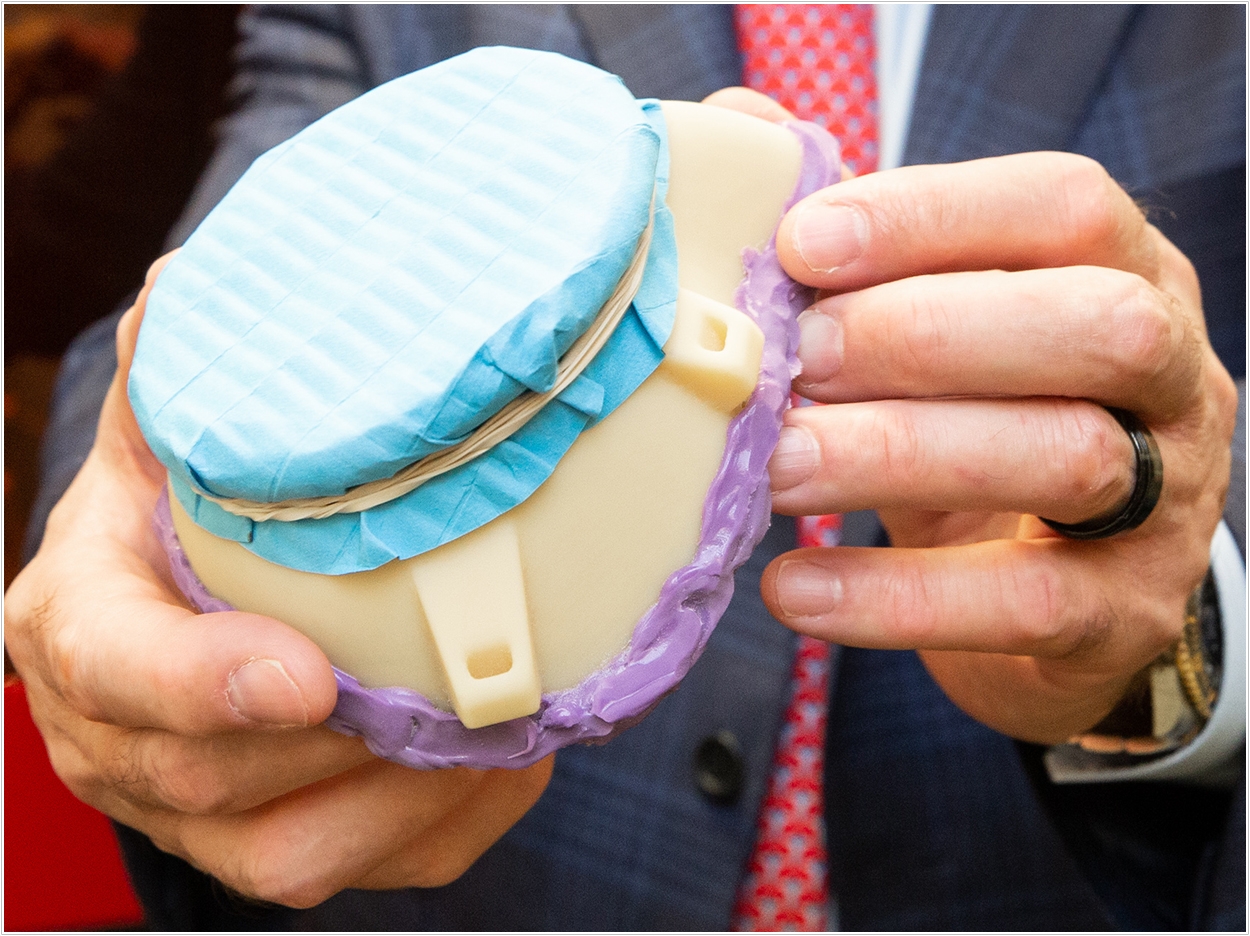
The University of Tennessee Health Sciences Center (UTHSC) College of Dentistry says it has successfully created highly effective biologic filtration masks using a 3-D printer in its Department of Oral and Maxillofacial Surgery.
“We were having difficulty obtaining the proper PPE (personal protective equipment) N95 mask,” said Jeffrey Brooks, DMD, executive associate dean and associate dean of clinical affairs at the College of Dentistry.
“The Department of Oral and Maxillofacial Surgery decided to get creative and to fabricate a mask that would allow us to use N95 or similar material to manufacture our own PPE, specifically masks,” said Brooks.
The department previously used the 3-D printers to print bio-models for maxillofacial trauma and pathology cases to improve reconstruction and surgery outcomes. The 3-D printers can produce precise and specific models, UTHSC says.
The college has been experimenting with several designs to discover which one will allow production of the most masks in the least amount of time. According to Brooks, the college has decided on a design and has printed more than 10 custom masks.
With the current design, the base portion of the mask can be used indefinitely, the mask can be disinfected, and the filter component can be replaced. Polyvinyl siloxane is used to fit the mask to the provider and get an airtight seal on the face. Moda Fabrics of Dallas donated bands to the college at no cost for use in the masks.
College faculty and residents will use the initial masks produced to maintain operations at their emergency dental clinic. The Dunn Dental Clinic, as well as the UTHSC pediatric dental clinic at Le Bonheur Children’s Hospital, are providing emergency dental procedures for current patients of the college and the community.
Also, the College of Dentistry says that its Oral Pathology Lab, which examines oral specimens, is one of only a few such labs still open in the region. Intake of emergency dental procedures is allowing patients to go to the College of Dentistry instead of filling up hospital emergency rooms in the city.
“This is a time for us to come together as healthcare practitioners. Dental emergencies can be not only painful, but life threatening. People still need to have treatment,” said James C. Ragain Jr, DDS, dean of the College of Dentistry.
“The reason we are staying open and keeping people out of emergency rooms is it allows the hospital staff to concentrate on those that potentially have COVID-19 so they are not having to treat someone who has an oral abscess or an infection. It’s a team effort to get through the crisis,” Ragain said.
Related Articles
AGD Urges Its Members to Donate Surplus PPE
PPE Shortages Hit Nearly Half of All Healthcare Facilities
Joint Commission Engages With Government in Managing PPE Shortages












